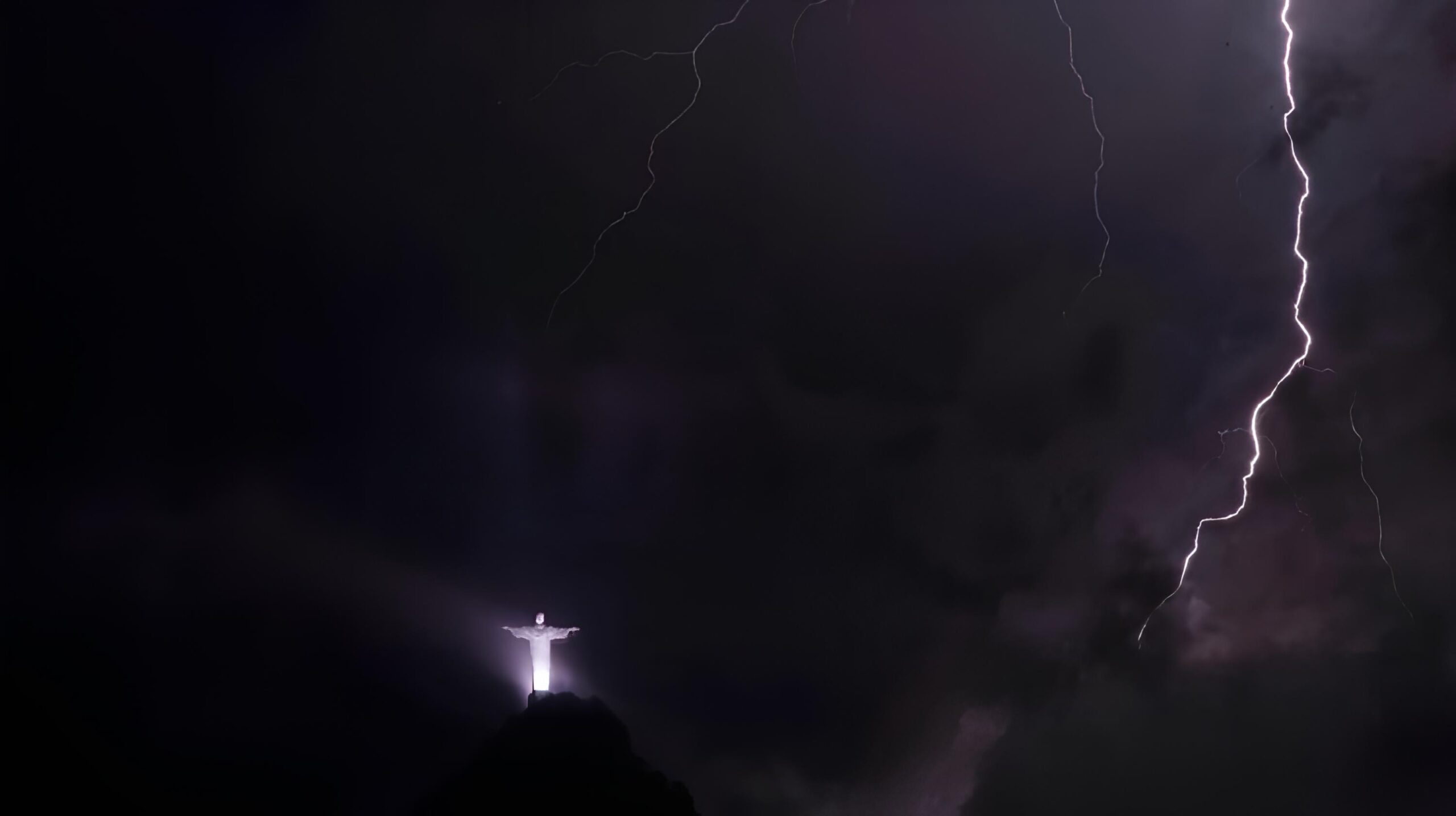According to information received by Kossyderrickent, the Christ the Redeemer statue in Rio de Janeiro was struck by lightning on February 10, 2023.
The Christ the Redeemer monument on Mount Corcovado in Rio de Janeiro, Brazil, was damaged by lightning.
Lightning hit the monument twice before, in 2017 and 2014.
The event occurred the night before during a rainstorm. The hit landed on the statue’s head.

The figure of Jesus Christ stands more than 700 meters above sea level on top of a mountain. He got the impression that he is “floating” over Rio de Janeiro as a result of this.
According to statistics from the National Space Research Institute, the monument suffers an average of six lightning hits every year, as previously reported by the Brazilian news portal UOL. After another lightning strike in 2014, it had to be repaired. Later, as a consequence of an electric discharge, the tip of the statue’s thumb on the right hand was fractured. Authorities chose to mend another previously damaged finger and the statue’s head. They also chose to install more lightning rods near the monument.
In the state of Paraná, TIM is negotiating with Engie, which won a public-private partnership contract to maintain and operate streetlighting in Curitiba last year.
“We are in discussions with the companies; we have a significant front in public lighting, which is also linked to the sector’s PPPs.” We already have significant partners, including Engie, Enel, and others. “We expect to move forward positively and formalize something for the market in the next two weeks,” Avellar added.




The business unveiled a smart lighting pilot with Engie in the Petrolina district of Pernambuco state in October of last year. This contract includes an IoT project to run 5,000 smart lights across the city.
TIM launched a 5G smart grid project for Enel So Paulo in November 2021. In what was purportedly the first 5G standalone power project in Latin America, the network leverages spectrum temporarily given by regulator Anatel in the 3.5GHz range.
Ericsson contributed antennas and radio equipment, Qualcomm offered chipsets and fixed wireless access customer premises equipment, Chinese business Fibocom and Taiwanese company CBN provided outdoor and indoor wireless equipment, while Lenovo’s Motorola provided mobile devices.
Avellar did not offer any updates on the project’s development or extension into other locations.
On the occasion, Enel stated that the outcomes of the So Paulo project will be used to assist additional digital transformation programs in concessions in Rio de Janeiro, Ceará, and Goiás.
In terms of logistics, TIM recently signed a comprehensive partnership with highway operator Ecorodovias to provide 4G to 850 kilometers of the BR-153, BR-080, and BR-414 motorways. According to the firms, the deal would benefit up to 31,000 people who travel on these highways on a daily basis and will be the country’s longest highway length with continuous coverage of TIM’s mobile services.
According to the corporations, the agreement will also benefit over 900,000 individuals along 33 routes connecting to the motorways, reaching 88 public schools, 31 health care units, and 8,500 rural homes.






